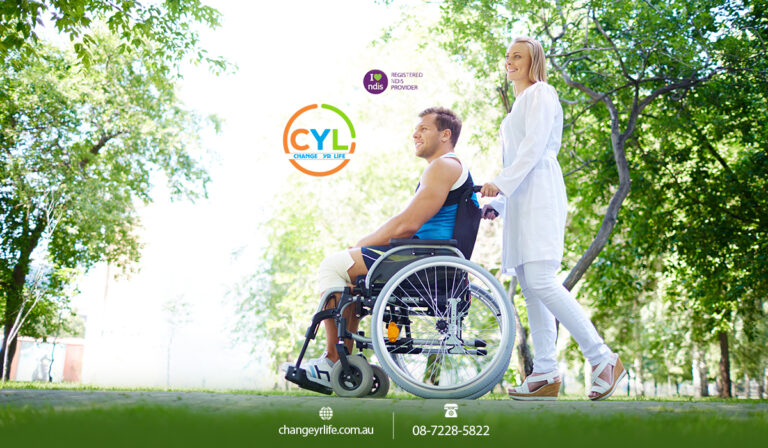Professional Support Pathway: NDIS with Mental Health Disabilities
“Breaking Down Barriers and Building Brighter Futures“
How would you feel if you knew that a government was funding a person with a disability to live an independent life? You feel it is a blessing to have that kind of support from the authority as we know living with a mental health disability can present significant challenges. It impacts daily life, relationships, and overall well-being. NDIS in Australia is designed to provide support to individuals with permanent disabilities including those with mental health conditions. If you do not know or do not have knowledge about NDIS Mental Health disability in Salisbury, and Pt Adelaide, this guide is meant for you.
We will explore the definition of mental health disabilities in the NDIS context, discuss the types of support available, and clarify how to go about accessing the scheme.
The goal is to empower individuals and their support networks to better understand how the NDIS can be a powerful tool for positive change.
Understanding Mental Health Disabilities within the NDIS Framework
It is important to understand that not all mental health conditions automatically qualify for NDIS support. The NDIS utilises a specific definition of disability which focuses on the impact has on a person’s ability to participate in daily life. To be considered eligible, a mental health condition must be:
a) Significant: The condition must have a substantial impact on a person’s ability to participate in everyday activities. The impact needs to be more than common mental health challenges.
b) Permanent: The disability or condition is likely to be lifelong or long-lasting. This does not necessarily mean there is no chance of recovery. On the contrary, the belief is that the impact of the disability on a person’s functioning is ongoing and likely to persist.
c) Impact on Functioning: It must significantly limit a person’s capacity in one or more of the following areas:
- Communication
- Social Interaction
- Learning
- Mobility
- Self-care or Self-management
If your conditions meet the criteria mentioned above, you can be eligible for funding for the following conditions:
- Persistent Major Depressive Disorder
- Severe Anxiety Disorders
- Bipolar Disorders
- Schizophrenia
- Personality Disorders
- And Many More
The NDIS is not designed to address short-term mental health crises or conditions that are well-managed without extensive support. The focus is on supporting individuals whose mental health condition significantly impacts their functional capacity over the long term.
Common Misconceptions about Mental Health and the NDIS
i) The NDIS only for Physical Disabilities: This is absolutely untrue. The NDIS specifically aims to support individuals with any kind of disability. This even includes psychological disabilities which stem from mental health conditions.
ii) You need a diagnosis to get NDIS support: While a diagnosis is important to provide evidence of your condition what really matters is how the disability affects your ability to participate in daily life. If you experience significant functional impairment due to a mental health condition, you may be eligible with or without a diagnosis. However, getting a formal diagnosis will certainly strengthen your application to the NDIS.
iii) It is too complicated to apply: Sometimes, the application process can seem challenging, but there are several resources and support services available to guide you through. This blog, for example, seeks to offer some clarity and guidance.
iv) NDIS funding will cover therapy: While the NDIS might support capacity-building supports that link to therapy it does not replace the mental health system and does not directly fund routine therapy. This is because the NDIS is not designed to directly fund health services but rather, it increases the capacity of participants to manage their own lives.
NDIS Funding for Mental Health: What Kind of Support is Available?
The NDIS provides funding for a wide range of supports tailored to individual needs and goals. Those with NDIS Mental Health disability in Salisbury, and Pt Adelaide, can get the following support:
a) Support Coordination:
A Support Coordinator helps participants navigate the NDIS, develop their plan, and connect with suitable service providers. This is especially beneficial for those who find the NDIS in particular complicated or challenging to navigate.
b) Psychological Recovery Coaching:
This involves working with a coach to achieve personal recovery goals, build independence, and manage daily life more effectively.
c) Assistance with Daily Activities:
You get support for household tasks, personal care, and other daily activities. These kinds of personalised help can alleviate stress and improve overall well-being.
d) Social and Community Participation:
You also get funding for activities that promote social interaction, community engagement, and skill development. This could include group activities, classes, and recreational pursuits.
e) Capacity Building:
You receive funding for support that builds skills like budgeting, time management, communication, and self-management. These aims are about enabling participants to increase independence and to build the capacity to meet their own needs in the future.
f) Therapeutic Supports:
While NDIS does not directly cover therapy, it may support some therapeutic supports. The service is meant to build functional capacity working toward goals and building personal independence.
g) Assistive Technology:
You get funding for aids and equipment that support independence and well-being such as devices that offer assistance supporting medication or mobility to facilitate community access.
h) Plan Management:
Participants will have funding for a plan manager which is someone you can hire to help manage the funds allocated in your NDIS plan and to pay your service providers. It is essential to remember that the specific supports and funding allocated will be based on your individual needs and goals as outlined in your NDIS plan.
List of Disabilities that the NDIS Provides Support For
The NDIS can potentially offer assistance support for a variety of disabilities including but not limited to:
i) Physical disabilities: This includes cerebral palsy, multiple sclerosis, spinal cord injuries, muscular dystrophy, etc.
ii) Intellectual Disabilities: This includes Down syndrome, Autism Spectrum Disorder (which can also fall under psychosocial disability), and Intellectual Disability of other origins.
iii) Psychosocial Disabilities: This includes Schizophrenia, Bipolar Disorder, Severe Anxiety Disorders, Post-traumatic Stress Disorder (PTSD), Major Depressive Disorder, Personality Disorders etc.
iv) Sensory Disabilities: This includes Blindness, Vision Impairment, Deafness, Hearing Impairment, etc.
v) Neurological Disabilities: This includes Acquired Brain Injury, Epilepsy, Parkinson’s disease, etc.
vi) Developmental Delays: Global developmental delay
This list is not exhaustive and eligibility is determined based on the criteria outlined earlier including the impact of the disability on a person’s function.
How to Access the NDIS for a Mental Health Disability
Figuring out the NDIS application process can be daunting. But here are some general steps to get started:
1)Gathering Supporting Evidence:
You need to collect information about your diagnosis (if you have one) or the impact of your mental health condition on your daily life. This could include reports from psychiatrists, GPs, occupational therapists, social workers and other health professionals.
If you do not have a diagnosis, this is an important first step in getting this evidence, so you can demonstrate the impact of your condition.
2) Check Eligibility:
You need to review the NDIS eligibility criteria to ensure your condition meets the requirements for a significant and permanent disability.
3) Consider Supported Application:
You can consider seeking help from a support service, advocate, or family member to help you prepare your NDIS application.
4) Submit Your Application:
Once you have all the necessary information, you can submit your application to NDIA (National Disability Insurance Agency).
5) Attend Planning Meetings:
If your application is deemed eligible, you will be able to plan meetings to discuss your specific needs and goals.
6) Develop Your NDIS Plan:
An NDIS plan will be developed that outlines the support you will receive and the funding allocated.
7) Implement Your Plan:
Once your plan is approved, you can begin accessing the support you need using the funding provided.
Remember you are not alone on this journey. You can seek support from mental health organizations, disability advocacy groups, and NDIS service providers. Some great resources include:
- The National Disability Insurance Agency (NDIA) Website
- Your local mental health organisations
- Disability advocacy groups
- Support Coordinators
Conclusion: Empowerment Through Support
The NDIS can be an effective solution for individuals with mental disabilities offering a pathway to increased independence, improved well-being, and a more fulfilling life. While understanding the NDIS scheme can be sometimes confusing, knowing the eligibility criteria, available supports, and application process is the key to unlocking its potential.
If you are seeking assistance regarding the NDIS scheme or services related to NDIS Mental Health disability in Woodville, Elizabeth, Gilles Plains, Salisbury, and Pt Adelaide you can trust the professionals at Change Yr Life. We are a reliable NDIS-registered disability service provider offering the necessary assistance to individuals with disabilities.
Remember, you deserve to live a life that is empowered, fulfilling and includes opportunities to thrive. The NDIS can be a part of achieving those goals.








